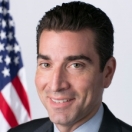
A $6 million manufacturer, a five-person carbon capture start-up, and a 70-person medical device company. On Monday, the President met with the leaders of these small businesses and 100 more like them to discuss the economy and the President’s commitment to small business success.
Organized by the National Small Business Association (NSBA), the group at the White House flew in from over 20 states and represented a broad cross-section of industries. The typical small business owner in the room employed 50 people, generating around $10 million in annual revenue.
As Alan Krueger, the Chairman of the Council of Economic Advisers, wrapped up his remarks on the state of the economy, the President stopped by for a surprise visit.
According to Todd McCracken, President and CEO of NSBA, the small business leaders were “delighted with the event and the President’s visit. He had a great deal of comfort with a broad range of issues that affect small businesses, from economic and tax issues to the specifics about things such as patent policy and small business innovation funds.”
On the sequester itself, the President noted how important getting a big deal in place along the lines of what he offered the Republicans in Congress is to the overall economy and the success of our small businesses. He thanked them for their leadership and for being engines of job growth in their communities.
In addition to the President and Alan Krueger, the group also heard from Marie Johns, Deputy Administrator of the Small Business Administration, Todd Park, U.S. Chief Technology Officer, Boris Bershteyn, the General Counsel and former head of the White House’s Office of Information and Regulatory Affairs (OIRA), Brian Deese, the Deputy Director of the National Economic Council, and Patrick Hidalgo, Deputy Director of the White House Business Council.
According to McCracken, the meeting was productive. “People thought the meeting was substantive – not politicized – and felt that there’s a sincere desire to getting these issues resolved.”


